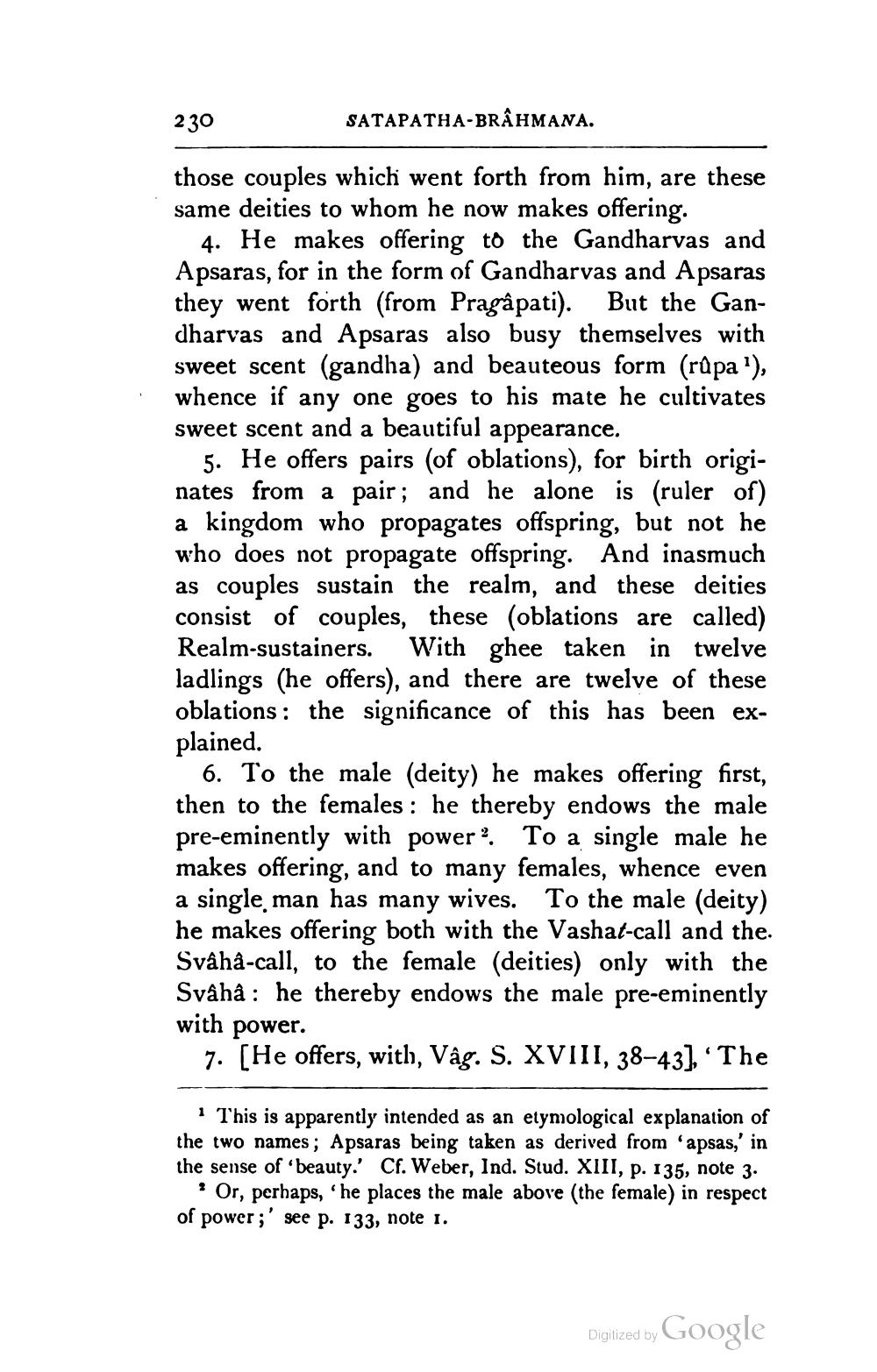________________
230
SATAPATHA-BRÂHMANA.
those couples which went forth from him, are these same deities to whom he now makes offering.
4. He makes offering to the Gandharvas and Apsaras, for in the form of Gandharvas and Apsaras they went forth (from Pragâpati). But the Gandharvas and Apsaras also busy themselves with sweet scent (gandha) and beauteous form (rûpa ), whence if any one goes to his mate he cultivates sweet scent and a beautiful appearance.
5. He offers pairs (of oblations), for birth originates from a pair; and he alone is (ruler of) a kingdom who propagates offspring, but not he who does not propagate offspring. And inasmuch as couples sustain the realm, and these deities consist of couples, these (oblations are called) Realm-sustainers. With ghee taken in twelve ladlings (he offers), and there are twelve of these oblations: the significance of this has been explained.
6. To the male (deity) he makes offering first, then to the females : he thereby endows the male pre-eminently with power? To a single male he makes offering, and to many females, whence even a single man has many wives. To the male (deity) he makes offering both with the Vashat-call and the. Svâhâ-call, to the female (deities) only with the Svâhâ : he thereby endows the male pre-eminently with power.
7. [He offers, with, Vâg. S. XVIII, 38-43). The
1 This is apparently intended as an etymological explanation of the two names; Apsaras being taken as derived from 'apsas,' in the sense of beauty. Cf. Weber, Ind. Stud. XIII, p. 135, note 3.
? Or, perhaps, 'he places the male above the female) in respect of power;' see p. 133, note i.
Digitized by Google




